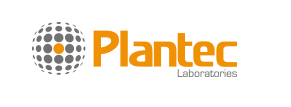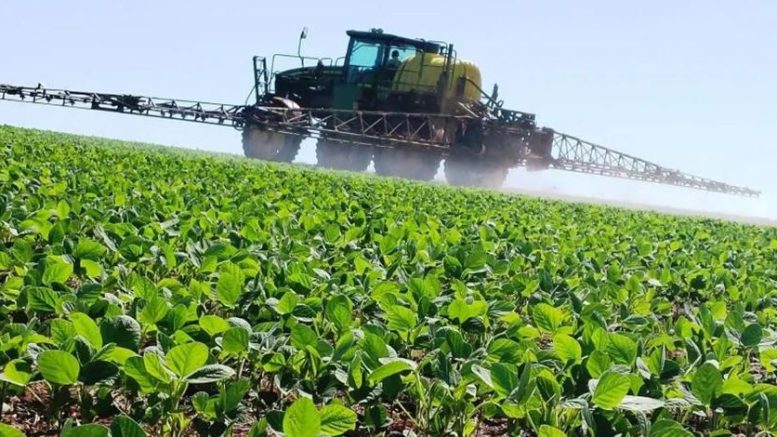Proper Use of Fungicides Increased Soybean Yields in Brazil
Brazil
In compliance with court decisions, Anvisa approved toxicological evaluations of 2,4-D-dimetilamina + aminopyralid by CHDS; and chlorfenapyr 190 + lufenuron 50 g/kg SC by Biorisk. (DOU, Resolutions No. 2501 and 2502 of 07/07/2025, Anvisa)
Ministry of Agriculture has established the National Program for the Prevention and Control of Huanglongbing (greening), setting criteria and procedures for classifying and maintaining the phytosanitary status of federal units, as well as measures for preventing and controlling the disease across the country. (DOU, Ordinance SDA/MAPA No. 1.326 of 07/04/2025, MAPA)
Hubio Agro announced the appointment of Killer Peterson Abreu as the company’s new CEO. (Hubio Agro)
Field trials conducted by 16 research institutions in 19 locations during the 2024/2025 crop season demonstrated that proper use of fungicides significantly increased soybean yields, even under high incidence of target spot, caused by the fungus Corynespora cassiicola. (FRAC)
Deliveries of fertilizer to the Brazilian market reached 2.68 million tonnes in April, a 16.8% increase over the same month in 2024, when 2.29 million tonnes were delivered. According to the National Association for Fertilizer Diffusion (ANDA), the growth in imports “continues to reflect the sector’s efforts to supply agriculture, despite the uncertainties of geopolitical crises, logistical challenges, and strategic issues to maintain the trade flow of this essential input, crucial for boosting productivity in the face of expectations for a record harvest.” (ANDA)
In 2025, MAPA has already registered 161 technical products (152 based on equivalency) and 254 formulated products (167 based on equivalency). Among the formulated products, 78 are biological and/or approved for organic agriculture. (MAPA)
According to Paulo Teixeira, Minister of Agrarian Development, it is the “objective of the State” to reduce the use of pesticides in agriculture and transition toward an agroecological-based system. “For every bioinput that can replace a pesticide, that pesticide will be removed from the market,” Teixeira said. He emphasized the importance of the National Program for the Reduction of Pesticides – Pronara, one of the highlights of the 2025/26 Family Farming Harvest Plan. (Ministry of Agrarian Development)
Bruno Camargo dos Santos has taken over as Marketing Director – Soy Seeds & Traits at Bayer. (Bayer)
AgriBrasilis will participate in the 16th Brasil AgrochemShow, on August 12th–13th (booth B100). The event about agrochemicals, fertilizers and bioinputs is organized by AllierBrasil, in partnership with CCPIT CHEM, from the Chinese government. (AllierBrasil)
“What we want is to reduce pesticide use and its impacts in Brazil,” said Luiz Meirelles, associate researcher at Fiocruz and the Labor Public Prosecutor’s Office. “Pesticide residue monitoring is strictly linked to health. Health agencies must have full autonomy to carry out this action and decide based on the results. Regardless of a product’s commercial interest, public health and environmental protection must come first,” said Meirelles, regarding the new National Program for the Reduction of Pesticides. (Fiocruz)
Tecnomyl has partnered with Syngenta to strengthen its position in the fungicide and insecticide markets. Syngenta, holder of the active ingredient solatenol, licensed the product to Tecnomyl, which will market it under the brand Desali. (Tecnomyl)
Despite expectations for another record soybean and corn crop, farmers will face a challenging outlook in 2025/26, with shrinking profit margins due to rising input costs—especially fertilizers—and sustained high interest rates in Brazil. (Itaú BBA)
CropLife Brasil, an entity in the crop protection sector, expressed concern about how the National Program for the Reduction of Pesticides was introduced by the federal government on June 30, during the launch of the 2025/26 Family Farming Harvest Plan. The organization said it was surprised by the lack of invitation for industry representatives and farmers to participate in shaping the policy. “These stakeholders have technical knowledge and experience to contribute to more balanced public policies, aligned with the responsible management practices already adopted in the country,” CropLife stated. (CropLife Brasil)
Passion fruit (Passiflora edulis) sanitary void in the State of Santa Catarina has defined dates for 2025. The measure mandates the complete elimination of sour passion fruit plants for at least 30 days starting in July. The aim is to curb the spread of Cowpea aphid-borne mosaic virus (CABMV), the main disease affecting the crop in Brazil. (Cidasc)
Bioinput developed by Embrapa Agrobiologia in partnership with Agrocete aims to boost productivity and improve the quality of Brazilian pastures, while reducing the use of chemical fertilizers. Set for market launch in 2026, the product combines three bacterial strains that promote plant growth and can be used on various types of grasses. (Embrapa)
In the early hours of July 1st, two men were arrested during a joint operation by the Military Police of MG and the Border Operations Command of the Military Police of GO, which resulted in the seizure of approximately 1,600 kg of illegal pesticides, including thiamethoxam, at a clandestine lab in rural Unaí, northwest MG. (COD)
Brazilian Association of Bioinput Industries held key meetings last week regarding the regulation of Law No. 15.070/2024. Approved late last year, the Legal Framework for Bioinputs still requires detailed rules for implementation and enforcement. (Abinbio)
Analysis of fungicide for seed treatment in wheat, conducted across six regions of Brazil during the 2024/25 season, confirmed the high efficacy of specific formulations against Fusarium graminearum and Bipolaris sorokiniana. The trials were part of the Cooperative Wheat Trials Network and used 2023 seeds, marked by high disease incidence due to excess moisture. Benzimidazole mixtures achieved up to 97.9% control of F. graminearum, while fluxapyroxad + mefentrifluconazole surpassed 96% control of B. sorokiniana. Products like pyraclostrobin + thiophanate-methyl + fipronil and thiophanate-methyl + fluazinam maintained over 85% control for both pathogens. (Cooperative Wheat Trials Network)
Ceasefire agreement between Israel and Iran and the resumption of nitrogen production in Egypt and Iran have brought relief to urea prices in the Brazilian market. “In Brazil, this drop in urea prices is good news for importers. Nitrogen imports usually increase in the second half of the year as Brazilian buyers step up purchases mainly for the 2025/26 corn second crop,” said Tomás Pernías, Market Intelligence Analyst at StoneX. (StoneX Consultoria)
Grupo UbyAgro announced Murilo Roveri as the new HR Director. (UbyAgro)
MAPA published Ordinance No. 805/2025, establishing the National Program for the Traceability of Pesticide Products and Related Items. According to Roberto Araújo, member of the Sustainable Agribusiness Scientific Council, the initiative caused “discomfort in the agricultural sector” due to the “rushed manner in which MAPA conducted the process, disregarding principles of sound regulatory governance, social participation, and economic reasonableness.” This prompted the filing of three Legislative Decree Bills in the National Congress aiming to suspend the measure. (CCAS)
Anvisa published the voluntary withdrawal of toxicological evaluation processes for 10 products from Cropchem, 2 from Syngenta, and 1 from Crystal. (DOU, Resolution No. 2503 of 07/07/2025, Anvisa)
Fertilizer manufacturer Cibra announced a US$ 272.7 million investment plan through the end of 2026. The company aims to double its raw material processing capacity, from 2.2 million to 5 million tonnes per year, through technological innovation, automation, and sustainability. Cibra is headquartered in Camaçari, BA, with operations in 13 facilities across eight states. (Cibra Fertilizantes)
MAPA published official letter No. 351/2025/SDA/MAPA regarding the request for prioritization in the analysis of one technical product and four formulated products based on the active ingredient metproxibiciclona for the control of barnyard grass (Eleusine indica). (07/03/2025, MAPA)

Latin America
Marcelo Figueira has taken over as Senior Strategic Marketing and Business Development Manager – Fungicides for Latin America at Sumitomo. (Sumitomo Chemical Latin America)
UPL appointed Brazilian agronomist Mariana F. Bittencourt Amaral as Global Director of Research and Development Stations. (UPL Ltda.)
Argentina authorized the commercialization of two GMO varieties from Corteva, one of soybean and one of corn. The approval was granted through Resolutions 113/2025 and 115/2025 by the Secretary of Agriculture. The new genetically modified corn combines insect resistance (lepidopterans) with tolerance to multiple herbicides, such as glyphosate, glufosinate-ammonium, 2,4-D, etc. The approved transgenic soybean expresses proteins that provide protection against lepidopteran insects and tolerance to acetolactate synthase inhibitor herbicides. (Senasa)
Brazilian Minister of Agriculture and Livestock, Carlos Fávaro, met with Alfredo Cornejo, Governor of Mendoza Province, Argentina, and his delegation. The meeting focused on the fertilizer trade, especially potassium exports from Argentina to Brazil, as well as strengthening the strategic partnership between the two countries. (MAPA)
Study by INTA Pergamino in Argentina indicated that, after six harvests without agrochemicals due to a court ruling in 2019, productivity fell to 41% for early soybeans, 24% for late soybeans, and 60% for wheat, affecting more than 6,000 hectares and 100 farmers. (INTA Pergamino)
Peru has temporarily suspended imports of dragon fruit from Ecuador due to the detection of unauthorized agrochemicals in a batch, prompting Ecuadorian Phytosanitary Regulation and Control Agency and Ecuadorian exporters to set up a technical roundtable to strengthen safety, transparency, traceability, and regulatory compliance. The actions focus on formalizing the production chain, standardized application of good agricultural practices, and adoption of phytosanitary protocols to ensure quality and resume exports to the Peruvian market. (Peruvian National Agricultural Health Service; Agrocalidad)

READ MORE:

